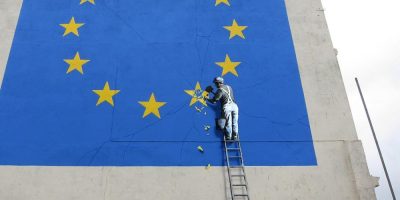Out of the Euro? Is Germany Heading for the Dexit? Recession, Social Fracture and Unemployment

All Global Research articles can be read in 51 languages by activating the Translate Website button below the author’s name (only available in desktop version).
To receive Global Research’s Daily Newsletter (selected articles), click here.
Click the share button above to email/forward this article to your friends and colleagues. Follow us on Instagram and Twitter and subscribe to our Telegram Channel. Feel free to repost and share widely Global Research articles.
New Year Donation Drive: Global Research Is Committed to the “Unspoken Truth”
***
After the consummation of the Brexit, the hypothetical exit of Germany from the Euro would provoke the liquidation of the Eurozone and the gestation of a new European economic cartography that will involve the return to the hermetic economic compartments.
Doctrine of the “Debt Brake”
As Joel Kotkin points out in Forbes magazine, for decades “the countries of the North (Germany, Norway, Sweden, Denmark, Holland, Finland and the United Kingdom) have compensated for very low fertility rates and declining domestic demand with the arrival of immigrants and the creation of highly productive export-oriented economies”. Thus, following the doctrine of the Schuldenbremse (debt brake) that Germany introduced in its Constitution in 2009 with the inescapable objective that “every generation pays its expenses and does not consume the taxes that their children will pay in the form of debt”.
Germany would have achieved successive economic surpluses in the last five years because the zero or negative interest rates implemented by the ECB required less money to pay public debt and allowed it to accumulate reserves to deal with the social crisis COVID-19 with a massive investment boost estimated at €20 billion to kick-start the economy.
The Traffic Jam of the German Locomotive
However, according to an analysis by the German Institute for Economic Research (DIW), at present Germany would be burdened by the war in Ukraine and the total cut in Russian gas supply that would have already caused a contraction of about €100 billion (2.5% of GDP). This contraction will have as collateral effects the entry of the economy into recession and the increase in the unemployment rate combined with a runaway inflation and the settlement of trade surpluses.
Thus, according to euronews.com, the German locomotive would have fallen in the fourth quarter of 2023 (negative growth of 0.3% of GDP) due to the increase in energy prices, the reduction in industrial production due to weak European demand, the stagnation of domestic consumption and the loss of competitiveness vis-à-vis the rest of the world, which has resulted in a severe decline of 1.2% of exports in 2023.
On the other hand, the rise in ECB interest rates to 4.5% combined with the rampant inflation of 5.9% in 2023, have caused real wages to stagnate in Germany, fiscal adjustments and cuts in agricultural subsidies that would have put the German countryside and the other trade unions on the warpath.
Charles Dumas (Lombard Street Research London), argues that “Returning to a cherished German mark would squeeze profits, increase productivity and raise consumers’ real incomes, because instead of lending savings surpluses to peripheral countries, Germans could enjoy better living standards in their country”.
Increase in Social Fracture
According to a recent EU report, 7.5 million Germans would work in the low-income employment sector (minijobs) and according to the NGO Paritätischer Gesamtverband, the proportion of people at risk of poverty in Germany would be 14% (16.6% of the population).
This, together with the high rate of immigrants in Germany (almost 20%), will lead to the sharpening of xenophobic feelings in German society (especially among East Germans), due to the reduction in the labour supply , consequent fierce competition for jobs and the conversion of many outlying neighbourhoods into genuine ghettos of immigrants, so it is foreseeable a spectacular rise of ultra-right groups in the next elections 2025.
To the Dexit?
According to a survey conducted by TNS-Emnid for the weekly magazine Focus, 26% of Germans would consider supporting a party that wants to take Germany out of the euro, so the rising star of the German political firmament, “Alternative for Germany” (AfD) which was initially formed by academics and businessmen but which would have been radicalised and adopted clearly xenophobic postulates, such as the possible expulsion of millions of foreign citizens, would be considering proposing a referendum on Germany’s exit from the Euro (Dexit).
The hypothetical exit of Germany from the Euro would mean the beginning of the termination of the Eurozone and the gestation of a new European economic cartography that will mean the return to the stagnant economic compartments and the triumph of the US in achieving the balkanization of Europe.
*
Note to readers: Please click the share button above. Follow us on Instagram and Twitter and subscribe to our Telegram Channel. Feel free to repost and share widely Global Research articles.
German Gorraiz Lopez is a political analyst. He is a regular contributor to Global Research.

